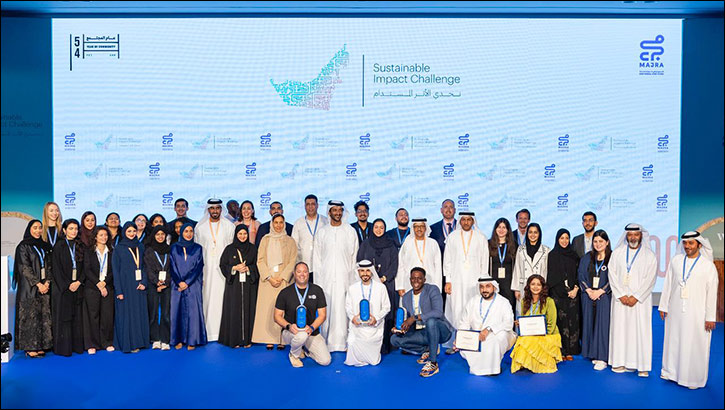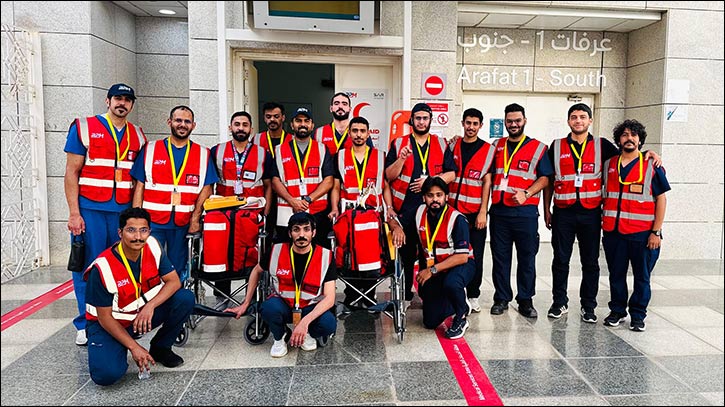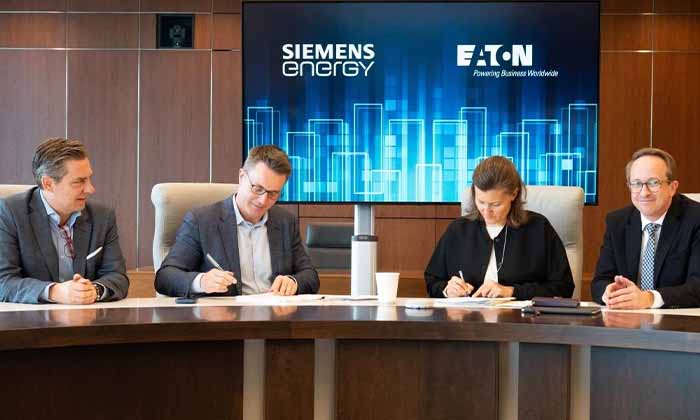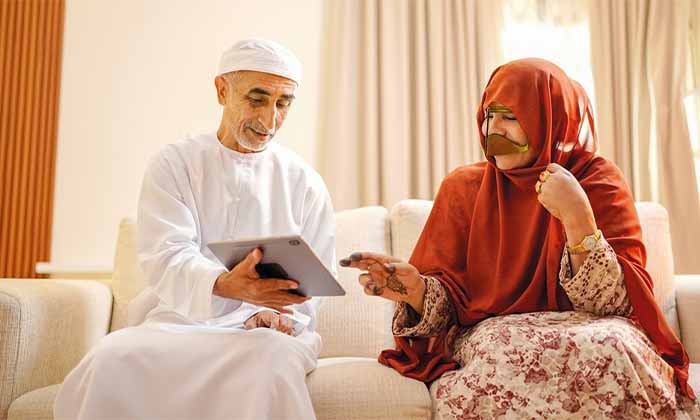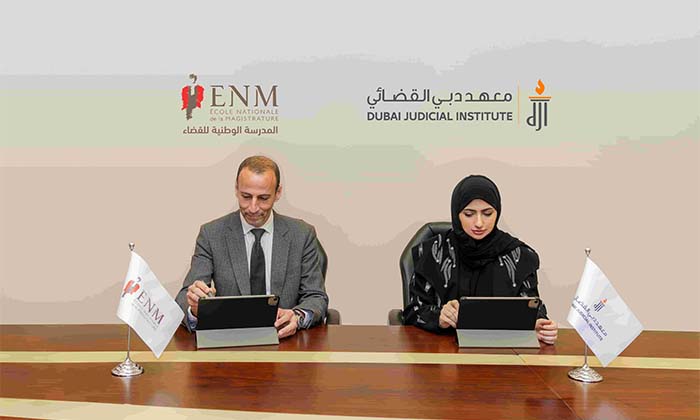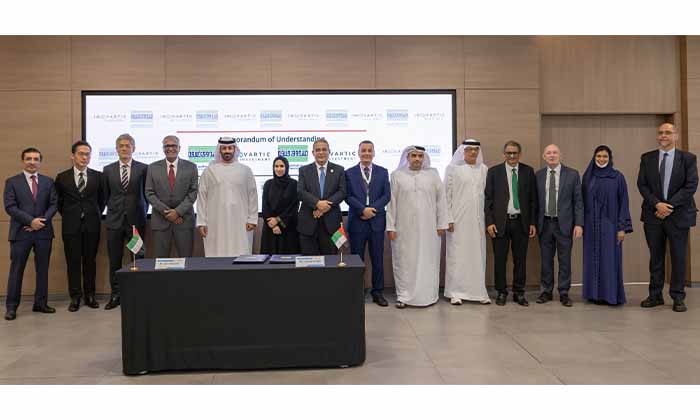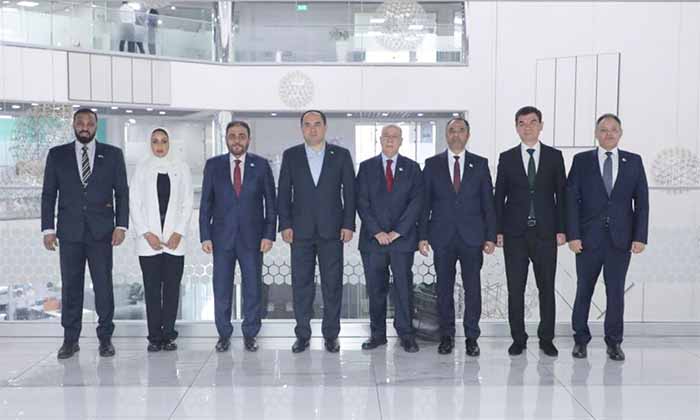Engaging university talent across all science and creative disciplines from over 100 countries, the programme brings together trailblazing ideas, projects, and technologies, addressing critical challenges affecting us all. Through a wealth of input from first-rate academic work, Prototypes for Humanity acts as a magnifying glass, raising awareness of global problems while celebrating solutions and actions that have the power to solve them.
● Held under the patronage of Her Highness Sheikha Latifa bint Mohammed bin Rashid Al Maktoum, Chairperson of Dubai Culture and Arts Authority (Dubai Culture) and member of Dubai Council, Prototypes for Humanity is an evolution from Global Grad Show, with a new focus on catalysing action and impact. Held in partnership with Dubai International Financial Centre (DIFC), it seeks to mobilise organisations whose infrastructure, reach, and technical know-how can be leveraged to accelerate the development and implementation of impact innovation
● The most diverse exhibition to date, introducing 100 IP-backed, best-in-class impact innovation projects by university students across all science, tech, and design disciplines, proposing solutions for a better world. Projects illustrate the numerous (and often unknown) ramifications of global challenges and evidence of how different approaches to problem-solving are not only complementary but necessary
● Applications received from 450+ universities from over 100 countries, ranging from leading global institutions including Stanford, M.I.T., Oxford, Cambridge, ETH Zurich, Tsinghua, and N.U.S., to rising universities in the Global South, with a record number of universities from 25 African nations, and large emerging economies such as India, Brazil, Indonesia, Mexico, and Turkey
● Awarding academic excellence, $100k in prizes will be offered to the best projects in the fields of Environment, Health, Society, and Corporate Solutions as part of the ‘Prototypes for Humanity Awards’
● The programme includes a series of meetings and workshops exploring how alliances between academia, private and public sectors can be mutually beneficial, with social and environmental impact at its core. It also invites venture-building specialists to contribute with their expertise in bringing innovation to life, speedily
● The event in November resonates with Dubai’s entrepreneurial spirit and the UAE's Path to COP28, to be hosted by the country at the end of 2023
Prototypes for Humanity debuts live at its new home
in DIFC from 16 - 17 November
Dubai, United Arab Emirates, November 11, 2022: Through a series of programmes and activities, Prototypes for Humanity debuts to celebrate and advance ideas for positive social and environmental impact. Built around a gathering of exceptional academic talent and their respective 100 innovations hailing from all four corners of the globe, the initiative launches as the most diverse assembly of impact-driven innovations, affirming its mission to catalyse change and its belief in the power of academia and alliances to accelerate change.
Prototypes for Humanity evolves from the originally design-centric Global Grad Show exhibition. Having grown into a multidisciplinary platform beyond the showcase, and now equally concerned with real-life implementation, it inaugurates a new phase in partnership with Dubai International Financial Centre (DIFC), the leading global financial centre in the Middle East, Africa, and South Asia (MEASA) region, under the patronage of Her Highness Sheikha Latifa bint Mohammed bin Rashid Al Maktoum, Chairperson of Dubai Culture and Arts Authority (Dubai Culture) and member of Dubai Council, and supported by Dubai Culture and A.R.M. Holding. In line with these changes, a celebration of academic excellence will be held at DIFC, including an exhibition of solutions alongside a resonant programme connecting key stakeholders from the global impact agenda.
Through an unmatched wealth of input from academic research, Prototypes for Humanity acts as a magnifying glass, raising awareness of global problems while celebrating solutions addressing them. Banking on the power of multi-stakeholder partnerships, it will look to validate the hypothesis that academic I.P., private and public sectors and venture-building experts can, together, build positive-sum impact solutions. In the context of ever-increasing pressure on communities and natural ecosystems worldwide, it will also seek to leverage its access to knowledge and talent to fuel action. This year's accompanying programme will include round-table meetings, debates, and workshops to map obstacles and outline incentives and the necessary mechanisms to allow high-potential innovation to migrate from university labs to the real world. The initiative will also engage the venture capital community, as well as private and institutional investors, including A.R.M. Holding, who launched a $2.7 million fund in 2019 to support social impact innovations.
The partnership with DIFC is a strategic step in that direction. Beyond its rapid growth as a hub for the global financial sector, DIFC is home to more than 60 per cent of all technology and innovation companies in the GCC, epitomising the ability to transform entrepreneurial energy and foresight into action. The hub’s sustainable development efforts and role in shaping the future economy – across funding, commercial and programming strategies – further strengthens its alignment with Prototypes for Humanity’s mission. Commenting on the vision for the partnership, Arif Amiri, CEO of DIFC Authority, said: “DIFC is committed to the development of the new economy, driving the future of finance and leading on initiatives that nurture innovation and sustainability. As the region’s foremost hub for entrepreneurship, partnering with Prototypes for Humanity is a further step towards enabling global talent to develop impactful innovation from Dubai. DIFC is actively committed to ESG innovation and ESG-driven growth. We understand that purposeful innovation often happens at the intersection of industries and through partnerships. We are a strong partner in making Prototypes for Humanity a reality, as we believe in the potential of academic research to initiate change.”
During the exhibition, open to the public on 16 & 17 November, 100 innovation projects will highlight key areas of interest for international students across all science and creative disciplines, including very topical subjects like energy and emergency relief, alongside ever-evolving challenges such as food production and access to healthcare.
Students in over 450 universities from more than 100 countries have applied, hailing from the likes of the Oxford Medical School, M.I.T.'s aerospace engineering programme, and Harvard's School of Government, alongside research hubs from the Global South, including the University of Ibadan in Nigeria, University of Mexico Centro, Bakrie University in Indonesia, Cadi Ayyad University in Morocco, and the State University of Azerbaijan.
Commenting on the programme, Tadeu Baldani Caravieri, Director of Prototypes for Humanity, says: “When considering significant societal problems, like pollution or illiteracy, we see how they are systemic issues, but with very tangible manifestation all around us. By looking at the solutions proposed by researchers from around the world, we can imagine a model that addresses these challenges in the reverse order, from the micro to the macro. Academia can clearly resolve most of the technical, concrete facets of pollution and illiteracy, for example. What we want to investigate through the Prototypes for Humanity programme is how to mobilise a consortium of organisations that can onboard these innovations and tackle these problems at a macro level, on a global scale, together.”
Among the trends identified in this year's applications, projects illustrate a shift in thinking about impact: from innovation for an uncertain future to urgent, more concrete, and quickly-deployable solutions anchored in viability. Furthermore, entries demonstrate that academic research is not happening in a vacuum but rather within a context of collaboration and opportunity, with clear influences from start-up culture that makes university projects noticeably grounded in the real world. Additionally, concepts directed at off-grid and self-reliant living illustrate a decreasing trust in the system.
_____________
The 100 shortlisted submissions introduced as part of the 2022 Prototypes for Humanity programme in Dubai include:
• Battery technology making carbon capture profitable – “Carbon Capture Battery”
University of Cambridge, UK
Solution to generate energy whilst capturing carbon, thus compensating for the cost of reducing emissions.
• Data-based financial system for rural smallholders without bank accounts – “Pollen”
Copperbelt University, Zambia
Enabling farmers to carry out financial transactions by providing an ecosystem for payments and affordable micro-loans on a blockchain system.
• A floating barrier to prevent plastic waste in rivers entering the oceans – “Trashboom” Bergische Universität Wuppertal, Germany
Low-cost and easily made from locally sourced materials, this floating barrier will dramatically reduce the 8 -12m tons of plastic that are currently entering the world's oceans every year.
• In-situ suicide prevention device for rural communities – “Survive”
National Institute of Design Haryana, India
Low-cost devices requiring minimal training to help save lives and tackle high numbers of self-poisoning cases among farmers.
• Smart helium-filled balloons for early forest fire detection – “Aerostat”
Middle East Technical University, Turkey
A mechanical and reusable smoke-sensitive helium tank that sends warnings through balloons that are also visible at night.
• 3D-printed tourniquet that cuts blood flow to an injured limb – “Sygnis”
Academy of Fine Arts in Warsaw, Poland
Easy to assemble 3D-printed product, designed to stem blood flow from a wound or injury immediately and significantly reducing the risk of death in emergency situations
• Low-cost ultra-accurate Covid-19 test - “Curial”
Oxford University, U.K.
Clinically trialled, AI-enabled screening test to reduce Covid-19 misdiagnosis to less than 1%, producing results 10x faster than current PCR tests.
• Accessible Pregnancy Test for the Visually Impaired – “Apt”
Massachusetts Institute of Technology, U.S.A.
The FDA-approved test kit utilising vibration technology offers visually impaired women greater privacy and independence.
• Ed-tech device that enhances the learning experience for low-vision learners – “Curio”
Dubai Institute of Design and Innovation, U.A.E.
Aid for children with low vision to facilitate engagement and active visual therapy for the child while assisting therapists in incentivising the process.
• Solar-powered cold storage solution reducing post-harvest losses – “AkoFresh”
Kwame Nkrumah University of Science and Technology, Ghana
Technology addressing the current estimated 30-50% of local pre-market food wastage, creating value for farmers.
• A cost-effective, accessible alternative to the traditional defibrillator – “Defi”
Technion – Israel Institute of Technology, Israel
Easy-to-carry device to help treat cardiac arrest, the number one cause of global deaths, 80% of which happen at home.
• Customised body-fitting orthoses with embedded sensors – “Thermowear”
Zhejiang University, China
Making smart orthoses more accessible, durable and adaptive by integrating electronics and meta-material structures with thermoplastics.
• Raft chair for households on floodplains – “Noah”
De La Salle-College of Saint Benilde, Philippines
User-tested, lightweight, unpuncturable floating chair with onboard first aid kit and paddle, assisting rescuers and saving lives.
• Bicycle wheel attachments that filter the air – “GoRolloe”
London South Bank University, U.K.
Using rider's motion and energy, these wheel attachments can drastically reduce city-level air pollution, with net-negative impact.
A comprehensive list of this year’s 100 shortlisted entries will be live on November 14 on www.prototypesforhumanity.com
___________
ENDS

